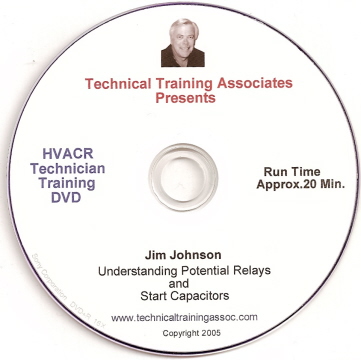
|
WHAT IS SCM?
In simple terms, SCM involves the entire process of buying and moving products. In other words, it is a combination of operational business functions that move goods into and out of an organization. The Council of Supply Chain Management Professionals (CSCMP) gives this definition for SCM.
“Supply chain management encompasses the planning and management of all activities involved in sourcing and procurement, conversion, and all logistics management activities. Importantly, it also includes coordination and collaboration with channel partners, which can be suppliers, intermediaries, third-party service providers, and customers.”
IMPROVEMENT STRATEGIES
Once senior executives begin to understand the overall concept, importance, and need for SCM within their organization, the next step is to begin developing a strategy for supply chain improvement. Recently, Harvard Business Press published a book called “The New Supply Chain Agenda: The 5 Steps That Drive Real Value,” which focuses on five key areas that organizations must address in order to achieve supply chain excellence.
- Pick the right leaders and develop supply chain talent.
- Keep up with supply chain technologies and trends.
- Eliminate crippling cross-functional disconnects.
- Collaborate with suppliers and customers.
- Implement a disciplined process of project and change management.
LEADERSHIP EXPECTATIONS
As you are reading this article, organizations everywhere are scrambling to find talented people who can lead their supply chains successfully into the future. Effective supply chain executives are now expected to have exceptional leadership, communication, and business skills, combined with an education and/or proven work experience in SCM.
Many organizations are finding a qualified talent pool at many of the universities that are now offering undergraduate and graduate degrees in the SCM disciplines. Also, it is becoming more common to see employers who require professional certifications from organizations like The Council of Supply Chain Management Professionals (CSCMP), The Institute for Supply Management (ISM), or The American Society of Transportation & Logistics (AST&L).
CHANGING TECHNOLOGY
Over the past decade, technology has become one of the key drivers for supply chain improvements in many organizations and is continually changing the business environment at a rapid pace. Supply chain technologies can generally fit into one of four separate categories: software, e-business technologies, visibility and productivity, and process advancement.
Senior executives must always be aware of the common and leading edge technologies that exist, while also being able to understand them at a high level. A common mistake that many organizations make is trying to integrate supply chain technologies without fully understanding the technology itself, and also how their current business operations need to change once the technology has been implemented.
FUNCTIONING TOGETHER
One of the biggest challenges that organizations currently face is to align each of their functional departments toward behaviors that benefit the firm as a whole. It is not uncommon to see many companies stuck in the silo mentality, while unknowingly incentivizing their functional departments to work against each other.
Organizations that have a strong understanding of SCM create an environment that encourages communication and collaboration between all functional departments. Leaders will generally develop metrics and incentives that drive behaviors to benefit the entire firm, while also integrating sales and operations planning (S&OP) processes into their yearly planning routine.
COLLABORATING PARTNERSHIPS
When examining relationships between suppliers and customers, it is not uncommon to see a one-sided oppositional relationship instead of a collaborative partnership that is mutually beneficial to both parties. One of the biggest challenges in modern SCM is overcoming the old business practices of withholding information and trying to keep suppliers and customers at arm’s length.
In order to make collaboration successful, all parties must be committed to devoting time and energy to the relationship while maintaining a positive opinion that collaboration can deliver significant business results. Next, many organizations find it helpful to use tools like the Collaborative Planning, Forecasting, and Replenishment (CPFR) model that are designed to help facilitate the collaboration process.
DISCIPLINED CHANGE
Supply chain improvement projects will often affect many functional departments within an organization, which makes it necessary for senior executives to have a solid understanding of how to lead and manage change. Often times improvement initiatives fail because leadership simply does not create a culture that uses disciplined project and change management principles.
In many cases, the most difficult challenges of supply chain improvement projects are generally overcoming the people issues and not necessarily the technical problems that arise. This is why it is a necessity for SCM executives to have extremely strong leadership and communication skills in order to lead people through all of the operational changes that are happening in their organization.
WHAT'S AT STAKE?
SCM has grown to be one of the most valuable business disciplines in today’s modern organizations. In fact, it is now common to see people with supply chain expertise becoming key players on C-level executive teams and even promoted to CEO. Failure to recognize the power and importance of SCM will certainly put any business at risk for future sustainability. Ultimately, it will not be long before every organization’s supply chain starts to become one of two things — a competitive weapon or an Achilles’ heel.
Mark W. Bray is the Director of Distribution and Logistics at ACR Supply Co. He holds two degrees from East Carolina University: Bachelor of Science in Industrial Distribution & Logistics; and a Master of Science in Technology Systems with a concentration in Distribution & Logistics. Bray also holds leadership positions in HARDI’s Distribution & Logistics Management Committee and on the Raleigh Roundtable Chapter of The Council of Supply Chain Management Professionals. He can be contacted at 919-765-8380 or mark.bray@acrsupply.com.










